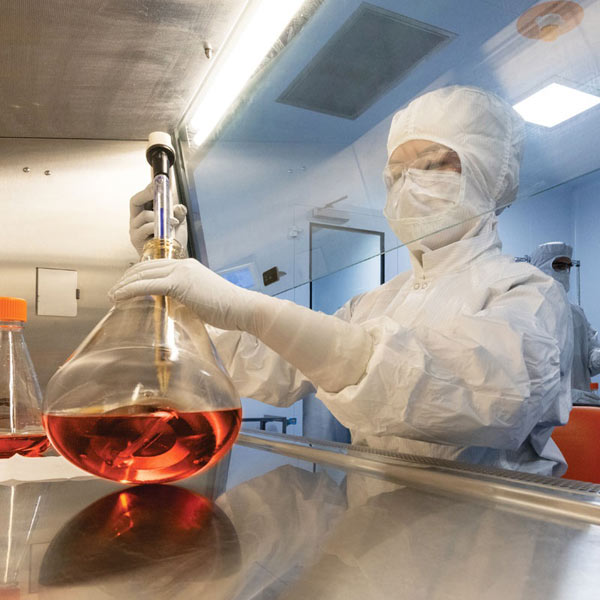Why Abzena?
Trust our focused approach.
At Abzena, we offer comprehensive upstream and downstream process development services tailored to the specific needs of your biologic therapeutics. Our integrated approach combines advanced cell culture and purification techniques to deliver scalable solutions as you progress your program onwards toward GMP manufacturing.
By utilizing our established cell line and platform process we rapidly develop and streamline your program development and commercial timelines. Our process development, optimization and manufacturing teams work together to develop quality, commercially viable processes, that ensure a seamless scale up directly from bench scale to final manufacturing through to commercialization.
Our state-of-the-art locations have a range of capabilities supporting the development, scale-up, optimization and stability of your process.

Advance your biologic with confidence:
→ Analytical Method Development and Validation: Developing and validating robust, phase-appropriate analytical methods for product characterization, including:
→ Product Characterization: Comprehensive analysis of biologic products, including:
Our capabilities include:
Following completion of stability time point testing, a final stability summary report is provided to support your clinical studies and market authorization applications.
Robust analytical methods inform critical decisions.
Upstream Process Development
Our team applies real-time monitoring strategies to optimize cell culture performance. Using targeted analytical assays, we evaluate parameters such as nutrient utilization, metabolite accumulation, product yield, and process consistency.
Downstream Process Development
We design analytical methods to assess purification efficiency (e.g., host cell protein quantification, aggregation analysis) and product purity at each downstream step. This ensures that any process adaptations—such as changes in chromatography conditions—are supported by reliable and actionable data.

Partnering with Abzena accelerates your biologic therapeutic programs by delivering optimized, scalable, high-quality processes. Our specialized mammalian process development expertise reduces development and manufacturing risks, enhances efficiency, and positions your biologic for successful clinical and commercial outcomes. We navigate the complexities of biologic process development so you can focus on bringing innovative therapies to patients faster.

The treatments you’re developing right now can make a real difference for human health. Let us support your work by successfully transferring an existing process—or developing a new one designed around your exact needs.